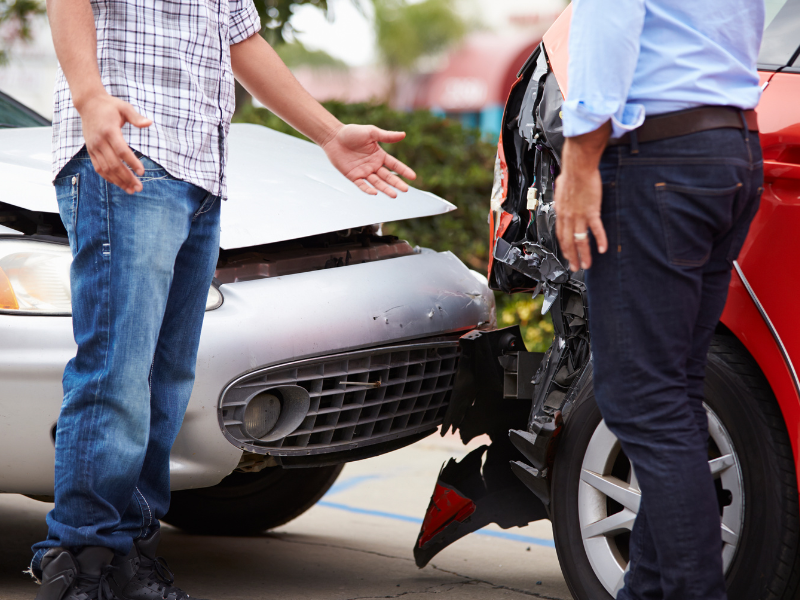In the aftermath of a car accident, confusion often abounds and stress levels are likely at their highest. There are steps you have to take to protect yourself from losses, but there are things you can say that may hurt your ability to recover damages should injuries result. Being mindful of what you say to the other driver(s) during an accident can make all the difference in winning your personal injury claim. What you say can be used against you in a resulting personal injury fight. Take care to avoid the following phrases in your efforts to deal with the situation directly after a collision on the roads:
(Don’t Get Tempted By a Quick Settlement at a Car Accident Scene.)
“I’m Sorry”
Saying you’re sorry presumes fault. At least it can be taken that way. In the aftermath of an accident, you may want to console the other driver. You may want to calm nerves. Saying you’re sorry makes sense if you are sorry the accident happened. But it does not necessarily mean you are sorry that you caused the accident. You are going to have to give your side of the accident to any police offer responding to the scene of the accident. You’ll have to deal with the other driver’s insurance claim. What you don’t want to do is advance an admission of liability if you’re not responsible for the accident in the first place.
‘It’s Not Your Fault”
For the same reasons you don’t want to say “I’m sorry” in the aftermath of an accident, you don’t want to advance an opinion that the other driver is not at fault. There are any number of factors that could have been at play when the accident occurred. You might not have noticed that the other driver was distracted, perhaps using their mobile phone, when the accident occurred. A pedestrian who witnessed the accident may indeed have. Their vehicle could have suffered a brake defect that you aren’t aware of. They could have missed a stop sign or been guilty of some other neglect that ultimately caused the accident. Never advance any opinion about whether or not they are at fault at the scene. Simply allow the police and insurance agencies to conduct their investigations and get to the bottom of what actually happen without interjecting a blame-focused, albeit comforting, statement before any of the professional investigators arrive.
“I’m Fine”
Probably one of the worst things you can say to another driver following an accident, “I’m fine” is potentially damaging to your claim should you have suffered an injury that presents no symptoms at the outset. Whiplash and other soft-tissue injuries rarely present a great deal of discomfort at the outset. Internal injuries and brain injuries also may show no symptoms at the scene. Also, you might be in shock at the scene of an accident. Assuring the other driver that you’re fine at the scene will only come back to haunt you if you should later seek medical care and file a claim for medical damages. The driver may dispute your injuries altogether just because of your initial statement at the scene.
It’s common to want to diffuse the tension when you first interact with the other driver or drivers in an accident, but it’s important that you don’t hurt your chances to recover damages in any resulting personal injury claim. You aren’t a physician. You also don’t immediately know all of the factors that led to the accident in the first place. You have one and only only vantage point in an accident scene. Allow the police to help sort out fault. It’s what they do.
Your focus should be on retrieving the contact and insurance information for the other driver, taking photos at the scene, identifying any people who would be willing to serve as witnesses and first and foremost insuring you get a medical evaluation as soon as possible if you have suffered any injury.
If you’re looking for an experienced Chicago personal injury lawyer to help navigate your personal injury claim, we will fight assiduously for your right to the compensation you deserve. Call Bizzieri Law Offices at 773.881.9000. The case evaluation is free, and we never charge a fee unless we recover damages for you.

